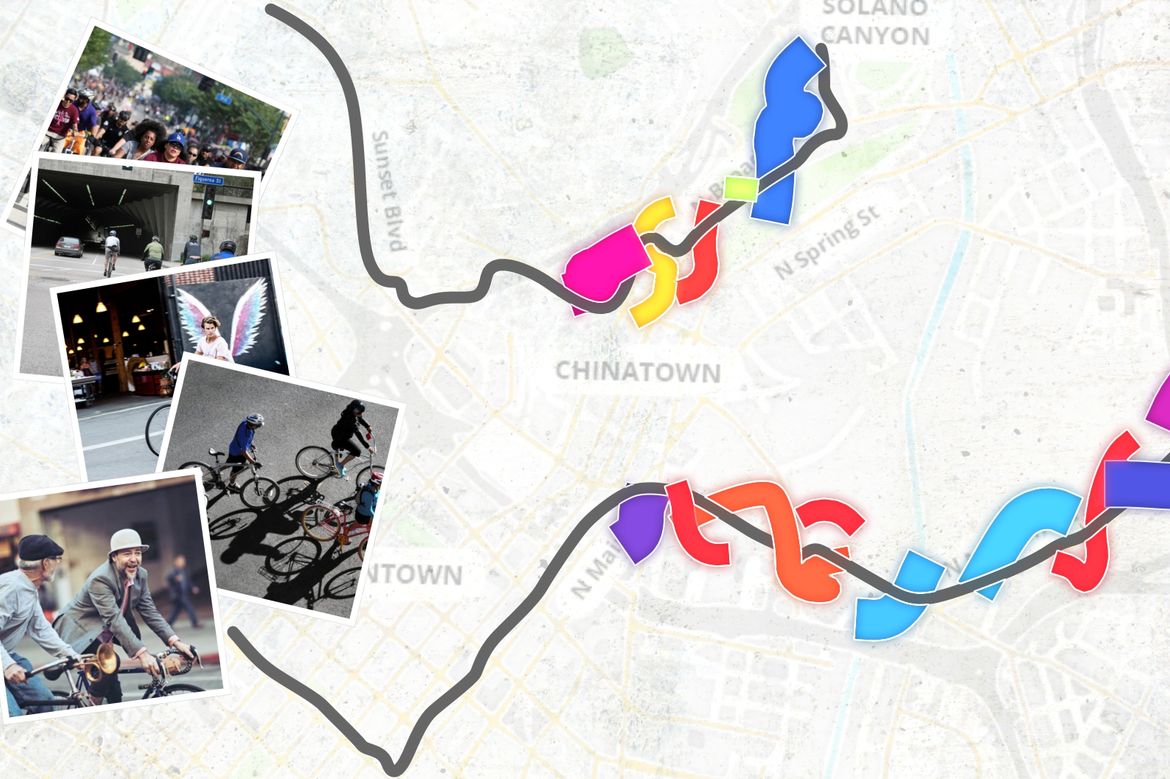A UCLA project intended to make cycling to work safer and more accessible — in part by using digital art and the spirit of community — has earned a $1 million award in a competition backed by the National Science Foundation and the Department of Energy.
The prize will allow UCLA researchers to begin a one-year pilot program that they hope will help establish the plan as a lasting part of the Los Angeles commuting landscape.
The Civic Bicycle Commuting team, or CiBiC, was one of 17 groups chosen to receive awards of up to $1 million in the NSF’s Civic Innovation Challenge — and one of just six in the competition’s mobility track, which invited plans to improve urban transit while considering disparities between housing affordability and jobs.
CiBiC will take aim at the daily commute in Los Angeles by creating bicycle “flows” that produce real-time digital art exhibitions throughout the city. The planners are creating a smartphone app that would not only organize riders into groups, but also would encourage inexperienced cyclists to participate by suggesting routes that are optimized for enjoyability and safety over efficiency or speed, and would enable all participants to share their experiences.
“Our team is honored by this investment on our interdisciplinary, community-driven, art-based solution to the challenges of commuting in Los Angeles, making our city more sustainable and a better place to live,” said Fabian Wagmister, the project’s principal investigator and the founding director of the UCLA Center for Research in Engineering, Media and Performance, known as UCLA REMAP. “We look forward to collaborating with our community partners and taking this from concept to reality.”
In addition to Wagmister, CiBiC is co-led by Jeff Burke, co-director of REMAP and a UCLA professor in-residence of theater, and Anastasia Loukaitou-Sideris, a distinguished professor of urban planning at the UCLA Luskin School of Public Affairs. Their mission was to create a ready-to-implement project that would address local sustainability challenges while minding inequality gaps. The project also is aligned with the goals of the UCLA Sustainable LA Grand Challenge, a campuswide initiative to help transform Los Angeles into the world’s most sustainable megacity by 2050.
During CiBiC’s pilot phase, it will focus on working with communities in Northeast Downtown Los Angeles that are most in need of better bicycling transportation options, including Chinatown, Solano Canyon, Lincoln Heights, Cypress Park and the William Mead Homes. The project leaders intend to gather input from community members as they finalize plans for the pilot phase.
CiBiC’s community partners include Los Angeles Metro, the Los Angeles County Bicycle Coalition and Los Angeles River State Park Partners; the team also is working with industry partners RideAmigos, Sorkhabi and SudoMagic, and Duke University’s Center for Advanced Hindsight.




